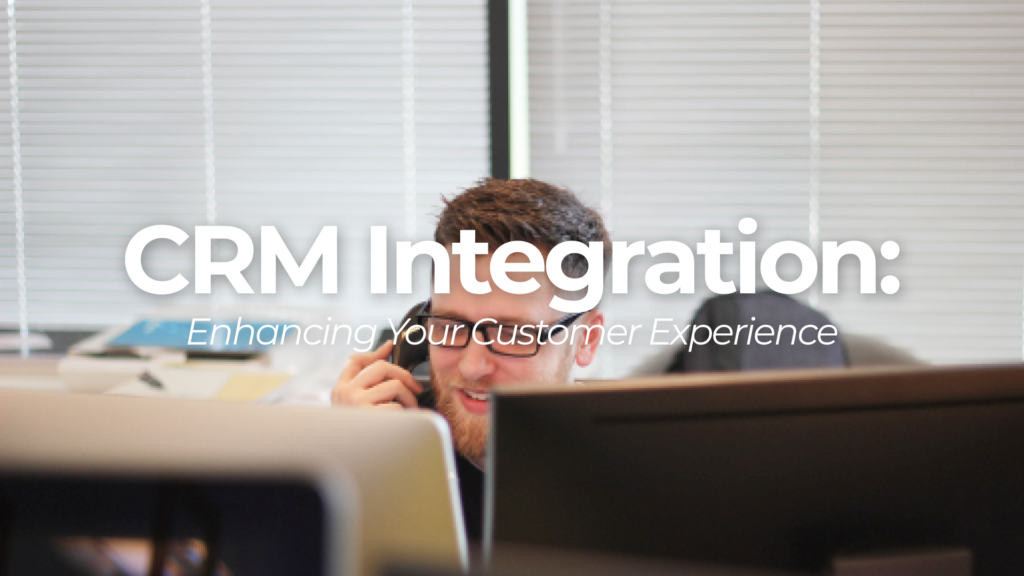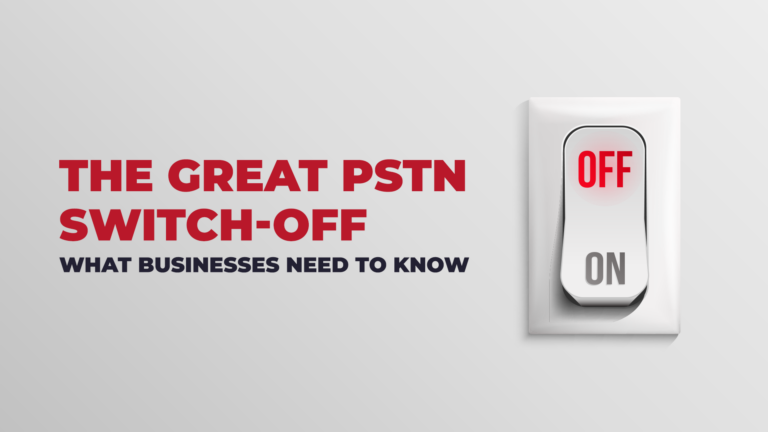In today’s highly competitive business landscape, customer service plays a crucial role in establishing and maintaining a successful company. The way businesses interact with their customers directly impacts customer satisfaction, loyalty, and ultimately, business growth. This is where CRM integration comes into play.
CRM integration refers to the process of connecting customer relationship management (CRM) systems with other software and tools to enhance customer service capabilities. It enables businesses to centralise and manage customer data effectively, streamline customer interactions, and gain valuable insights for informed decision-making. With CRM integration, businesses can deliver personalised experiences, resolve issues efficiently, and build stronger relationships with their customers.
Understanding CRM Integration
CRM integration is a powerful tool that allows businesses to optimise their customer service efforts by seamlessly connecting their CRM system with various other software and tools. At its core, CRM integration aims to improve the overall customer experience by providing businesses with a comprehensive view of their customers and enabling efficient communication systems to optimise how you use it.
A CRM system serves as a central repository for storing and managing customer data. It captures vital information such as customer contact details, purchase history, support tickets, and interactions across various channels. By integrating the CRM system with other applications such as a telephone system, businesses can automate and streamline processes, saving time and resources.
The benefits of CRM integration are manifold. Firstly, it ensures that customer data is centralised and up-to-date. With all relevant customer information consolidated in one place, businesses can access a holistic view of each customer, enabling them to provide personalised experiences tailored to their needs and preferences. Real-time updates and accessibility to customer data allow customer service representatives to respond promptly to inquiries, resolving issues efficiently and improving customer satisfaction.
Secondly, CRM integration enhances customer interactions. By integrating communication tools like a phone system or live chat with the CRM system, businesses can provide seamless omnichannel support. Customer service representatives can view the entire history of customer interactions, enabling them to provide personalised and context-rich responses. This level of engagement builds trust and strengthens the customer relationship.
Lastly, CRM integration enables better, faster, more efficient customer interactions. With your customer records linked to your phone system, a window will appear on your screen with all the information of the caller. This way you can find out their history, click to answer straight from your computer, and then greet the caller personally. This saves compound time in the long run for your team, whilst also giving a much warmer, faster, more personalised experience for your callers.
Advantages for Customer Service
CRM integration offers numerous advantages for businesses looking to enhance their customer service capabilities. By leveraging the power of integrated CRM systems, businesses can streamline processes, personalise interactions, and gain valuable insights into customer behaviour. Here are some key advantages of CRM integration for customer service:
Firstly, CRM integration enables improved customer interactions. With integrated CRM systems, businesses can deliver personalised customer experiences. Customer service representatives have access to a customer’s entire history, including past interactions, purchases, and preferences. This allows them to provide tailored recommendations, anticipate customer needs, and offer proactive support. By offering a personalised touch, businesses can build stronger relationships with their customers, leading to increased satisfaction and loyalty.
Secondly, CRM integration facilitates efficient issue resolution and support. Integrated CRM systems enable businesses to track customer support tickets, assign tasks, and collaborate effectively across departments. This ensures that customer inquiries and issues are handled promptly and efficiently. Customer service representatives can access relevant customer information, view the status of ongoing issues, and provide timely updates. The streamlined workflow and improved communication within the organisation contribute to faster resolution times and higher customer satisfaction.
Challenges and Solutions
While CRM integration offers numerous benefits, it is important to acknowledge and address the challenges that may arise during the implementation process. By proactively identifying and finding solutions to these challenges, businesses can ensure a smooth and successful CRM integration. Here are some common challenges and their corresponding solutions:
- Data and migration challenges: One of the primary challenges in CRM integration is the seamless integration and migration of data from existing systems to the new CRM system. Data mapping, cleansing, and standardisation are critical steps to ensure accurate and reliable data. By investing time and resources in thorough data preparation and employing data migration tools or services, businesses can overcome these challenges and ensure a smooth transition.
- User adoption and resistance: Resistance to change and lack of user adoption can hinder the success of CRM integration. To address this challenge, it is essential to provide comprehensive training to employees, highlighting the benefits and ease of use of the integrated CRM system. Clear communication about the objectives and advantages of CRM integration, along with ongoing support and assistance, can help alleviate resistance and encourage user adoption.
- Integration maintenance and updates: As technology evolves, it is crucial to keep the integrated CRM system up to date. Regular system checks, troubleshooting, and updates are necessary to ensure optimal performance and compatibility with other software and tools. Staying informed about CRM system updates, attending training sessions, and working closely with the CRM vendor or IT team can help businesses address maintenance challenges effectively.
- Privacy and compliance measures: CRM integration involves handling sensitive customer data, which requires strict privacy and compliance measures. It is essential to implement robust security protocols, encryption techniques, and access controls to safeguard customer information. Businesses should also ensure compliance with relevant data protection regulations, such as GDPR or CCPA, to maintain customer trust and adhere to legal requirements.
- Compatibility with other software and tools: Integrating the CRM system with existing software and tools can be complex. Compatibility issues may arise, requiring thorough testing and customisation. To overcome this challenge, businesses should carefully evaluate the integration capabilities of the CRM system and work closely with IT professionals or CRM consultants to ensure seamless integration with existing software and tools.
Future Trends in CRM Integration
As technology continues to advance, future trends in CRM integration are poised to revolutionise customer service. Businesses that stay ahead of these trends can gain a competitive edge and deliver exceptional customer experiences. Here are some key future trends:
- AI-powered customer service and chatbots: Artificial Intelligence (AI) is rapidly transforming customer service. Integrating AI-powered chatbots with CRM systems enables businesses to provide instant and personalised customer support around the clock. Chatbots can handle routine inquiries, provide product recommendations, and even initiate proactive conversations with customers based on their behaviour and preferences. This integration streamlines customer interactions, improves response times, and enhances overall customer satisfaction.
- Integration with emerging technologies (e.g., IoT, blockchain): CRM integration is expanding beyond traditional software and tools. Integration with emerging technologies like the Internet of Things (IoT) and blockchain opens up new possibilities. By connecting CRM systems with IoT devices, businesses can gather real-time customer data and deliver personalised experiences based on customer behaviour. Integration with blockchain technology enhances data security, transparency, and trust, allowing businesses to build stronger customer relationships.
- Predictive analytics and proactive customer service: CRM integration with advanced analytics tools empowers businesses to leverage predictive analytics. By analysing historical customer data, businesses can anticipate customer needs, identify patterns, and provide proactive customer service. For example, a CRM system integrated with predictive analytics can alert businesses about potential customer churn, enabling proactive retention efforts. This trend empowers businesses to be more proactive in meeting customer needs and increasing customer loyalty.
- Mobile integration: With the increasing reliance on mobile devices, CRM integration is moving towards mobile platforms. Businesses are leveraging mobile CRM applications to enable real-time access to customer data, facilitating on-the-go customer service. Mobile CRM integration enhances field sales, remote support, and customer engagement, empowering businesses to deliver seamless customer experiences regardless of location.
It is essential for businesses to stay abreast of these future trends. By embracing these advancements, businesses can stay competitive, meet evolving customer expectations, and drive customer loyalty. Adopting a customer-centric approach and leveraging these trends can lead to long-term success and differentiation in the marketplace.
Conclusion
CRM integration is a game-changer for businesses looking to enhance their customer service capabilities. The advantages are numerous. By proactively addressing these challenges and staying updated on future trends, businesses can maximise the benefits of CRM integration.
Ultimately, CRM integration empowers businesses to deliver exceptional customer experiences, foster loyalty, and stay ahead in today’s competitive market. By recognising its importance and investing in its implementation, businesses can elevate their customer service to drive growth and success.
Here at Yo, we’re all about improving the success of the businesses we deal with. So, If you are interested in learning more about improving your business development, or generally future-proofing your business – enter your contact details into the form below and we’ll be in touch with how we can help you and your business TODAY!











